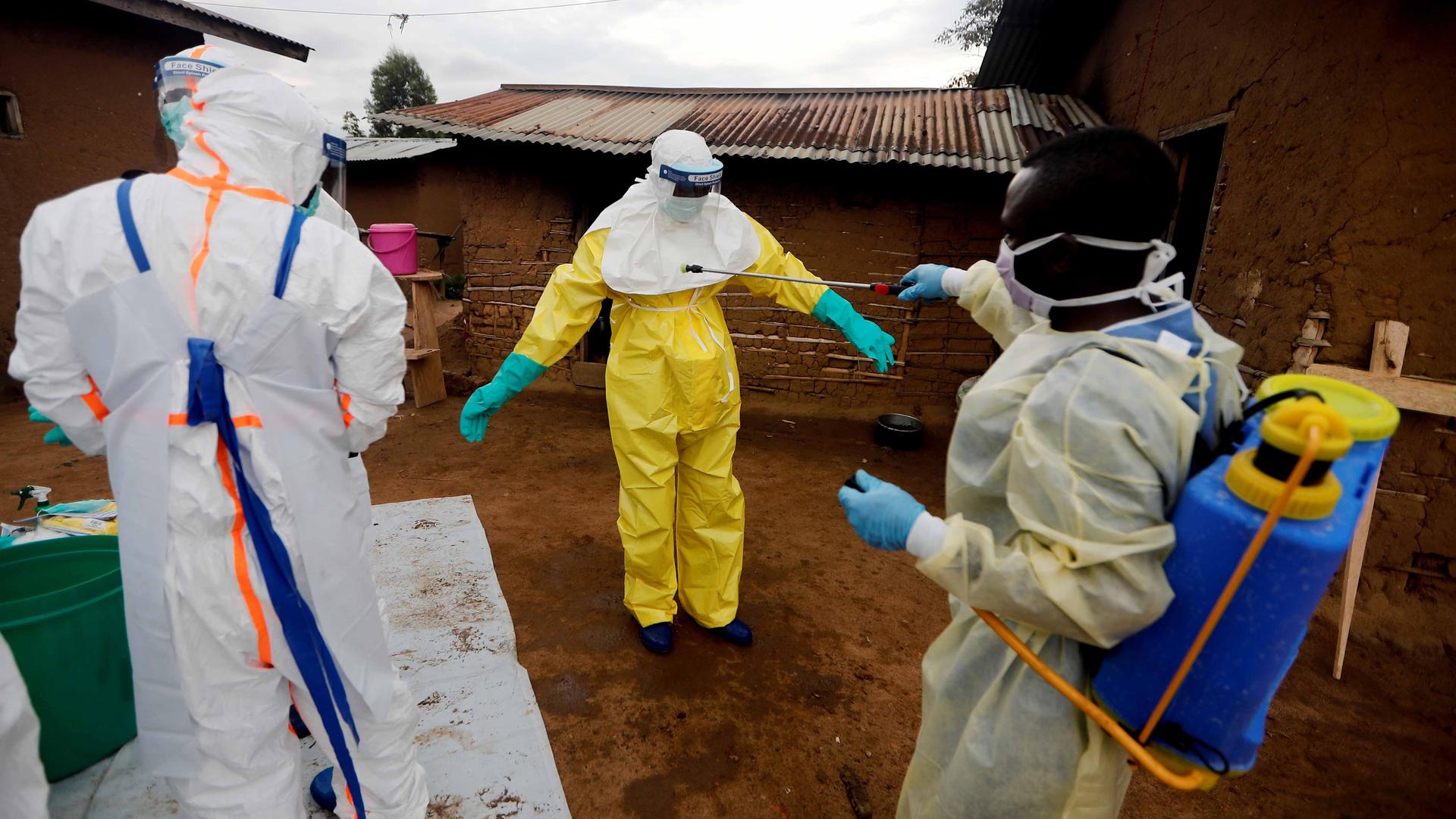There is a global backlash against US President Donald Trump’s decision to halt American funding for the World Health Organization. The move would slash about 10% of the organization’s operating budget during the coronavirus pandemic.
Germany and China are denouncing the president’s plan, as are all the 55 member states of the African Union.
WHO support is critical in many parts of Africa — including countries like the Democratic Republic of Congo, which is not only dealing with the coronavirus outbreak, but with Ebola.
Dr. Michel Yao is WHO’s program manager for emergency response for Africa. He spoke to The World’s host Marco Werman about what it’s like to deal with a pandemic and an epidemic at a time when WHO is overstretched.
Related: COVID-19: The latest from The World
Marco Werman: Dr. Yao, what do you make of Trump’s call to stop US donations to the WHO?
Dr. Michel Yao: I think we acknowledge the support received from the US so far in many different public health interventions. And based on this support, we had many achievements. The comment that I can make is that it’s quite unfortunate that it’s happened at this moment where we need most of the members around us. We are appealing really for more solidarity and being together for this unprecedented crisis.
Related: In Senegal, COVID-19 safety measures conflict with cultural traditions
We’re thinking a lot about the coronavirus, but I know at the beginning of this week, the DR Congo was hoping that it could declare itself Ebola-free. And yet, two people died from Ebola. That’s got to be really disappointing for health workers. What does it mean for the country’s ability to effectively deal with two epidemics at the same time?
In a fragile health system, like the one we have in DR Congo, it means that the resources will be overstretched. You have to deal with Ebola — that is absorbing a lot of resources. If we want to control it, it’s going to require dedicated attention. At the same time, you have another disease that also spreads faster than Ebola. So, it will mean that the resources have to deal with two challenges, and there would be more of a stretch. So, there is a need for our different partners to remain on board and around.
Related: As coronavirus spreads, poor communities in Kenya are left vulnerable
When the Ebola outbreak started in DR Congo in August of 2018 — so nearly two years ago — many people didn’t believe it was real. In fact, as you know, militias shot and killed health workers over it — colleagues of yours. How are people in DR Congo reacting to COVID-19? Are they taking it more seriously?
It’s the same in DR Congo as well as in many countries. You see, this deadly virus has a lot of rumors. So, it’s like in many communicable diseases, it requires a lot of awareness. So, I think we learned a lot from Ebola that we need to share the right information. We need to also engage communities to be on board, to assign them tasks for them to own their response. And that’s what we are doing. Learning from Ebola, we are building on what we did. But these rumors are always there.
Related: What the US can learn from West Africa to slow the spread of coronavirus
With your background, Dr. Yao, in emergency responses to epidemics, how does COVID-19 compare? Is it too soon to compare it to other outbreaks you’ve been through?
COVID-19 is, I think from my experience, it’s one of the things that I’ve never seen, the way it affects many countries at the same time. So, you find all the worldwide resources absorbed by this outbreak, and it leaves less for support for the weakest.
I’m in charge of emergency operations for WHO Africa. And in my experience, we deal with few countries. Major outbreaks never affect more than 10 countries at once. But this time, we have in our region — we cover 47 countries — we have 45 of them in crisis. So, this is what makes it totally different from what we saw in the past.
This interview has been condensed and edited for clarity.
Our coverage reaches millions each week, but only a small fraction of listeners contribute to sustain our program. We still need 224 more people to donate $100 or $10/monthly to unlock our $67,000 match. Will you help us get there today?
